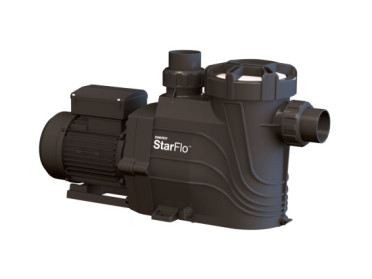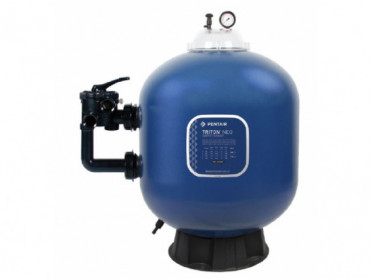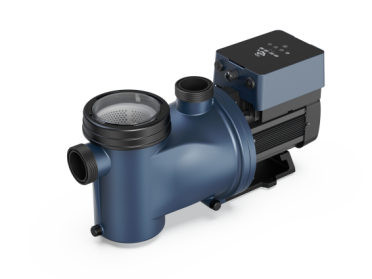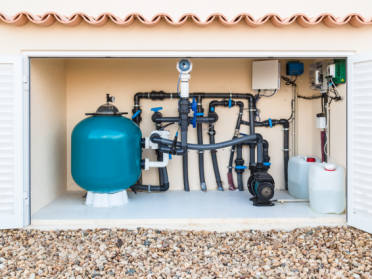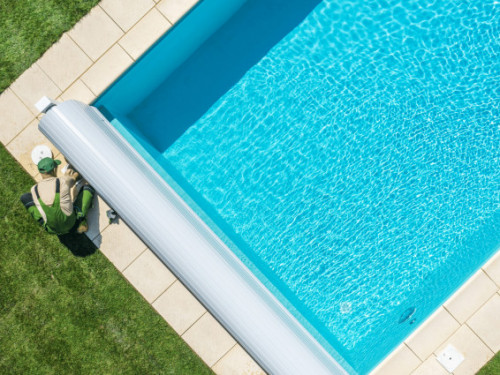
How Long Should I Run My Pool Pump?
Category : Maintenance
Running your pool pump is one of the most important steps you can take to keep your pool water crystal clear. This is because moving water is much less susceptible to mucky contaminants so prevalent in stagnant water.
Circulation is key in preventing algae growth and keeping your water swimmable. This circulation is produced by your pool’s filtration system, which contains the pool pump. The pump sucks in water and then pushes it back out through the filter trapping debris and bacteria to return clean water.
So you might think that the more you run your pump, the cleaner your water. In an ideal world, perhaps, you’d always be running your pump. That’s 24 hours a day, seven days a week, 365 days a year. But think again: Constantly running it might not be the best option. Instead, a better practice is to determine the appropriate length of time to filter your pool, and then just run the pump for those hours.
How Long You Should Run Your Pool Pump Each Day
To keep all the water in the pool clean and clear, plan to run your pool pump long enough to filter the entire volume of water in your pool at least once a day. The number of hours it takes for all the water in the pool to go through the filter is called the “turnover rate.”
Did You Know?
Routinely running your pool pump longer than your turnover rate is a waste of electricity – and a shock to your electric bill. Not only that, you’ll end up wearing out your pool equipment much faster than necessary.
The rule of thumb is generally 8 hours, although it could be anywhere from 6-12 hours, depending on your pool’s size. Each pool is unique, so to keep your pool pump efficient and effective, you need to figure out exactly what your pool’s turnover rate is.
How You Calculate Flow Rate
Flow rate is an important criterion to consider when selecting a pool filtration pump. First, you need to determine your pool’s volume – or how many meters cubed of water your pool holds. If you don’t have this information readily available, you will need to calculate the volume by the shape of your pool. Make easy work of this by using our handy Pool Volume Calculator tool.
Did You Know?
Here are the formulas to calculate a pool’s volume:
Rectangular Pools: Length x width x average depth = total pool meters cubed
Circular Pools: π x radius squared x average depth = total pool meters cubed
Once you have the pool volume, you can calculate the flow rate. The flow rate is the amount of water that is filtered in a given time and is expressed in m³/hour. More specifically, it is calculated as a function of filtration of pool water in 4 hours.
For example, if the volume of the pool is 48 m³, the volume of water that the filtration system must filter will be 48÷4, i.e. 12 m³/hour. If the volume of your pool is higher, for example 80 m³, the volume of water to be filtered will be 80÷4, or 20 m³/hour.
Be sure to communicate this information to your pool professional in order to facilitate the process of choosing the ideal pool pump for your swimming pool.
When You Should Run Your Pool Pump
Just as important as how long you run your pool pump is when you run it.
You know you need to turn over your pool water in 6-12 hours – but that doesn’t mean 6-12 consecutive hours. To save money on your electric bill, opt to run your pool pump during non-peak hours when electricity costs the least. You can choose to run it for, say, three hours in the early morning and another five hours in the evening. Your electric company can tell you which hours are billed at peak rates and which are billed at non-peak rates, so you can plan your pump’s schedule accordingly.
On the other hand, there might be some times when you want to run your pump during the hottest, sunniest time of day. UV rays burn up the chlorine, so running the pump helps counteract the sun’s effects.
In addition to daily pumping for turnover, you’ll also want to run your pool pump any time you add chemicals so that they get evenly distributed in your pool water. Whether it’s a shock treatment or simple routine chemical maintenance to your pool, run the pump immediately afterward to properly disperse them.
What a Variable Speed Pump Does
Are you running your pump at full speed all the time? Did you know that this might not be necessary? Switching from a single to variable-speed filtration pump is an eco-friendly upgrade that can lead to energy savings. Use this handy calculator tool to simulate just how much you can save by switching to an energy-saving pool pump.
Many pool owners have discovered the benefits of high-efficiency, variable-speed pumps over single- or even dual-speed pumps: In addition to energy savings, variable-speed pumps are quieter and have longer lifespans. The multiple speed options mean you can decide when you need extra “oomph” for more intense filtration and when you can dial back to a lower, energy-efficient, greener setting.
In reality, constantly running your pump is neither practical nor even really needed. As long as all the water in your pool goes through the filter at least once a day, it will stay clean and healthy.
Related Products
More Maintenance Tips
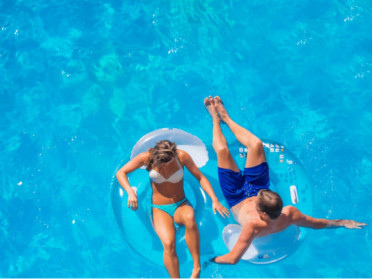
Construct
How Long Does it Take to Build a Pool?
Once you’ve decided to build a pool, your emotional clock begins ticking. All you can think about is relaxing in the cool blue water. Or you might find yourself dreaming about inviting friends and family over for pool parties or an outdoor dinner by the shimmering pool.

